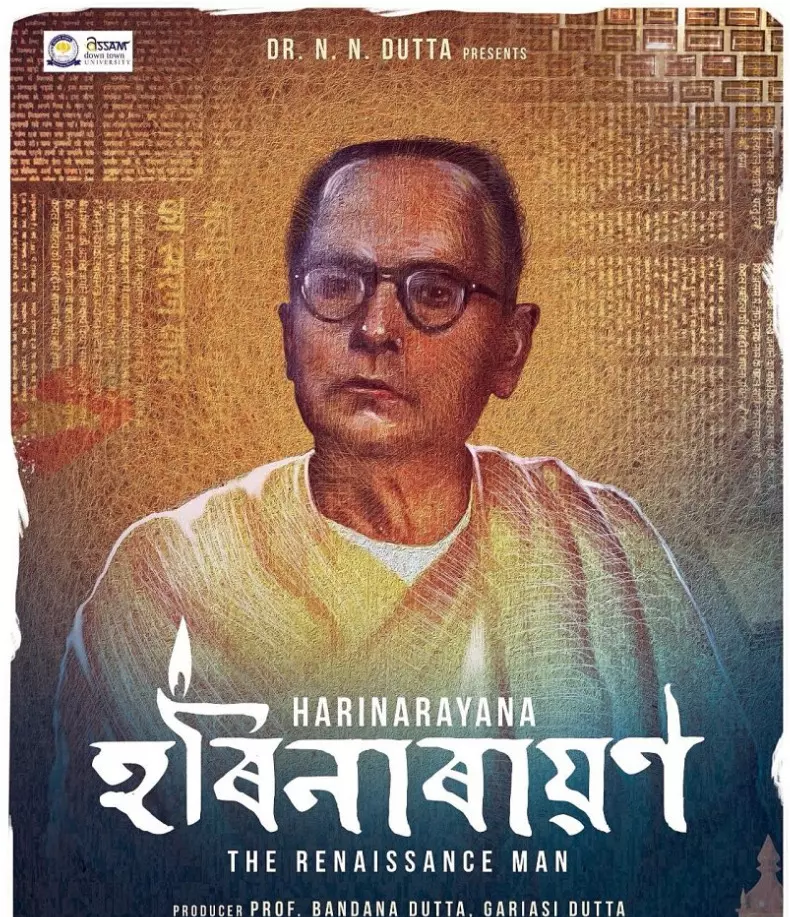Harinarayan: A Cinematic Tribute by Utpal Datta

Guwahati: In a world increasingly driven by instant information and fleeting fame, the legacies of many regional pioneers remain hidden from national consciousness. One such name is Hari Narayan Dutta Baruah, a visionary from Assam whose contributions to literature, language, and cultural identity played a defining role in shaping modern Assamese society. His story, however, has rarely found the attention it deserves—until now.
Veteran filmmaker and journalist Utpal Datta has stepped in to bridge that gap through his deeply personal and compelling 20-minute documentary, Harinarayan. The film, a biographical tribute, not only chronicles Baruah’s contributions but also positions him as a silent force behind the formal introduction of the Assamese script in literature and academia. At a time when Bengali script dominated reading and writing in Assam, Baruah’s efforts brought about a cultural transformation that continues to influence generations.
The genesis of the documentary traces back to an annual lecture at Assam University held in Baruah’s memory. Datta, who had grown up reading Baruah’s works and studied at a school established by the family, was inspired to undertake the project after journalist Anant Vijay’s address. With the backing of the university and Chancellor Dr. N. N. Dutta, Datta found himself compelled to tell the story of a man who had once shaped his own childhood worldview.
Through archival research, rare interviews, and personal reflections, Harinarayan presents a portrait of a man of deep conviction and unwavering discipline. A devout Vaishnavite, Hari Narayan led a life of simplicity, austerity, and purpose. Despite enduring the deaths of his children and brother, he remained committed to uplifting Assamese language and literature. His efforts culminated in the establishment of Uma Press, a major publishing house that supported local voices and preserved ancient religious and literary texts.
The film also gives voice to Baruah’s family members, particularly his daughter and daughter-in-law, who recall his final years with grace and dignity. Their accounts, along with those of scholars, journalists, and academics, create a layered narrative that speaks both to the man and his mission. Noted library researcher Dr. Ruby Goswami played an instrumental role in helping Datta retrieve original editions and contextual materials, while the production spanned 18 months of research and filming.
Creatively, Datta pushed boundaries to ensure the film resonated across generations. Composer Tarali Sarma blended traditional Assamese instruments with modern arrangements to reflect the philosophical undertone of Baruah’s life and ideals. Cinematographer Ratul Barman and sound designer Debajit Gayan used minimal resources to create a powerful aesthetic, moving seamlessly between black-and-white and color to emphasize time shifts and emotional arcs.
The documentary had its first screening during the same memorial lecture that inspired its creation, a poetic full-circle moment for Datta. He reflected on the journey with quiet satisfaction, noting how the film’s path was shaped by what he called “a strange coincidence of destiny.”
In Harinarayan, Utpal Datta has done more than make a documentary—he has offered a long-overdue acknowledgment of a man who helped build the intellectual scaffolding of modern Assam. It is a cinematic salute to legacy, language, and a life spent in service of knowledge.


